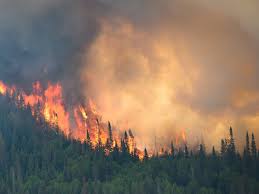Understanding the Wildfires in Canada: Current Situation and Response

Introduction
Wildfires are a recurring environmental challenge in Canada, significantly impacting ecosystems, air quality, and communities across the nation. The 2023 wildfire season has witnessed unprecedented fire activity, making it crucial to understand the causes, effects, and responses to these natural disasters.
Current Situation
As of September 2023, Canada has experienced one of the most severe wildfire seasons in its history, with over 8,000 recorded incidents and more than 10 million hectares of land burned. Northern Alberta, British Columbia, and Yukon territories have been particularly hard-hit, with large-scale evacuations and property damage reported.
The early onset of summer drought and extreme heat waves have contributed to the rapid spread of wildfires. The Canadian Interagency Forest Fire Centre (CIFFC) has noted that climate change is increasingly influencing the severity and frequency of wildfire incidents, raising alarm among environmental scientists and policy-makers.
Government and Community Response
In response to the escalating crisis, the Canadian government has mobilized resources and personnel to assist local firefighting efforts. The Canadian Armed Forces have been deployed to various regions, providing essential support in battling the flames. Furthermore, funding has been allocated for firefighting resources and community recovery initiatives.
In parallel, many communities have initiated preventive measures, such as controlled burns and firebreaks, to mitigate risk. Public awareness campaigns have also been launched to educate citizens on fire safety and preparedness, emphasizing the importance of staying informed through reliable sources.
Impact on Communities
The ramifications of wildfires extend beyond the immediate danger of fire. Smoke from the wildfires has led to poor air quality in various provinces, affecting the health of residents, especially those with pre-existing respiratory conditions. Schools and businesses have been forced to close due to health advisories, causing economic strain. Many families have lost their homes, leading to conversations around insurance and rebuilding.
Conclusion
The wildfires in Canada during 2023 have highlighted the growing concern over climate change and its impact on natural disasters. Experts predict that without significant changes to how communities prepare for and respond to wildfires, these events are likely to become more severe in the future. As the situation develops, it is critical for Canadians to remain informed and engaged, and for governments to invest in both immediate firefighting resources and long-term preventative measures to safeguard communities against the increasing threat of wildfires.









